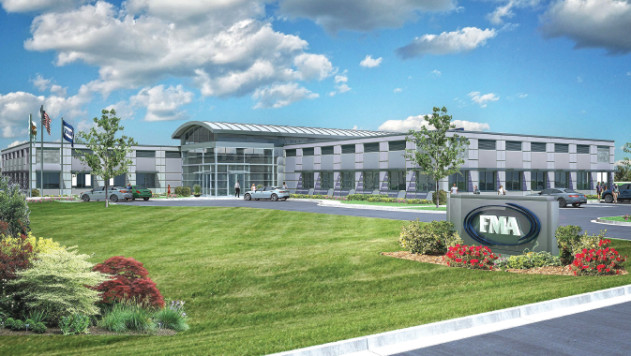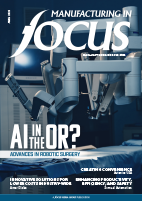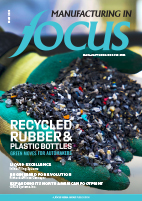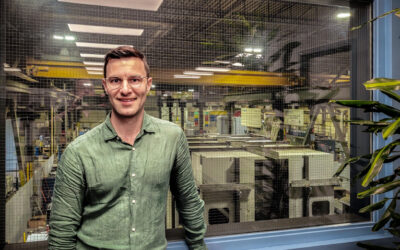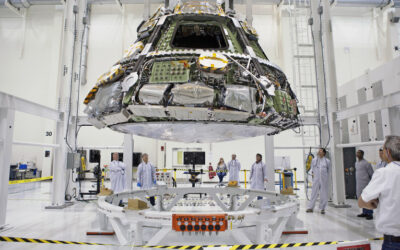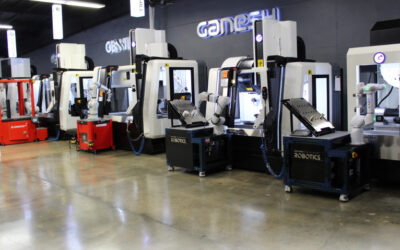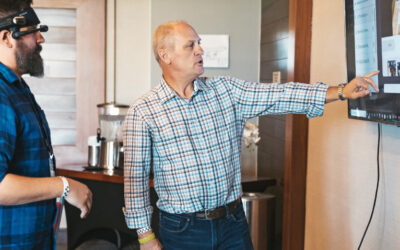The Fabricators & Manufacturers Association International® (FMA) is a professional organization with more than 2,500 individual and company members working together to improve the metal processing, forming and fabricating industry.
~
“Our mission is to promote and advocate for the growth and sustainability of the industry,” summarizes FMA President and CEO Ed Youdell. Since its founding in 1970, the association has promoted the industry through technology councils, educational programs, networking events, and the renowned tradeshow FABTECH®.
One of the FMA’s goals is to dispel common misperceptions about modern manufacturing. “There is that perception that manufacturing is still 1970s-era. The perception in people’s mind—especially parents—is that manufacturing is not a place where they want their kids to work. They think it is dirty, it is not safe, it is old fashioned.”
FMA, in partnership with the National Association of Manufacturers (NAM), National Institute of Standards and Technology (NIST) and the Manufacturing Institute, created Manufacturing Day to help educate the public on what modern manufacturing really entails. “The point of Manufacturing Day is to allow manufacturers to open their doors up to their communities and get students and parents inside so that we can show them that it is a safe, clean and higher tech than what many people are aware of,” Mr. Youdell explains. Held the first Friday of every October, manufacturers from across the nation participate in this grass-roots movement each year to give a collective voice to an often-misunderstood industry.
The Manufacturing Day partnership joined forces with Deloitte to analyze the effectiveness of the event. “Last year, for the first time, we surveyed and 80 percent of the students who participated [in Manufacturing Day] now see manufacturing as having career potential for them. We are able to show that we have made a difference for those 400,000 people who participated last year. We are starting to change their perception.” The partnership is again working with Deloitte this year to measure the impact of 2016’s Manufacturing Day.
Manufacturing Day is inspiring the next generation of manufacturing professionals and helping to draw new talent into the industry. This recruitment is vital as the industry continues to face an ongoing workforce shortage. “I’ve seen research that in 10 years there will be 2.5 million unfilled jobs in manufacturing. The current average age (of manufacturing professionals) is mid-50s, and baby boomers are retiring at a rate of 10,000 people a day. So how are we going to replace those people? We have to start today to get them ten years from now.”
Today’s manufacturing requires skill and commitment, so recruitment efforts aim to attract professionals who will add value to the industry. “Modern manufacturing is utilizing advanced manufacturing methods such as robots, digital printing, software and analytic tools and CNC equipment,” Mr. Youdell points out. “So the needs of our current workforce are changing and we need to recruit the best and the brightest into the workforce.”
Nuts, Bolts & Thingamajigs (NBT) is a key FMA initiative helping to inspire the next generation of manufacturers, inventors and entrepreneurs. Through scholarships and summer camps, the foundation helps young people discover a passion for making things. NBT scholarships fund students who are majoring in programs that lead to careers in manufacturing, while NBT manufacturing summer camps allow middle school students to design and build a product from start to finish. “We need to reach kids at that age and show them that there are career opportunities in manufacturing to get them thinking and examining their options about career and work.”
NBT campers get exposure to all sorts of manufacturing processes such as the use of CAD tools to design products, and then take those designs to the manufacturing floor where they operate various kinds of manufacturing machinery under the close supervision of expert trainers in order to bring those designs to life. In addition, campers tour local manufacturing facilities to see what types of jobs exist, what skills and training are needed, and how local manufacturing businesses developed. The program has been a great success. “We stared about ten years ago with our first camp,” Mr. Youdell remembers. “And last year we had 39 camps around the United States.”
Initiatives such as Manufacturing Day and NBT are helping to change the public’s perceptions, but Mr. Youdell points out that the responsibility to reinvent the industry’s image also lies with individual manufacturers. “Changing perception lies with manufacturers themselves,” he explains. These changes could start with basic terminology. “I think it would be great if we stopped calling people workers because no one ever wanted to grow up to be a worker. I think we are better off referring to people who work in manufacturing as manufacturing professionals. We can do that ourselves; it is very simple to do. It is just a matter of respect.”
Other nations already give manufacturing professionals greater respect, and Mr. Youdell would like to see that level of appreciation in the United States as well. “We really need to value it much more in US society. You can use Germany as an example; manufacturing there is really [given] a status along the line of people who work in the medical profession.”
The industry must also continue to embrace the use of modern technology in order to compete on the world stage. “We are competing on a global basis,” Mr. Youdell points out. “The key for manufacturers, job shops, and fabricators here in the States is not to think about the competition down the street anymore. You have to look bigger. There is no reason that a job shop can’t do that.”
The technology that keeps a modern job shop globally competitive requires a well-trained workforce. “We need skilled people to operate it – people who understand programming, CNC controls, and workflow. All those skills will be necessary for our next generation workforce.” FMA is helping to create this skilled workforce through education and training initiatives.
The association partnered with Harper College in Palatine, Illinois, to create new learning opportunities for students training for a career in manufacturing. The association donated $500,000 toward a $1.5 million, 6,000 square foot metal fabrication lab that will double the size of the college’s current manufacturing facilities.
The new lab will boast the latest technology so that millennial manufacturers are fully prepared for the 21st century workplace. “The metal fab lab is helping us to educate and create the next generation workforce with the best technology, and help the college recruit students to help our local manufacturers. Our hope is to be able to duplicate the fab lab around the country as we go forward to help grow our [industry].”
Of course, FMA offers a variety of training opportunities to members. Workshops and multi-day conferences keep participants up to date on a range of industry topics. For those who want to learn from the comfort of the office, FMA offers online training courses that are available 24/7 as well as interactive webinars with live presenters who are able to handle Q&A. The association can also arrange custom training in a member’s shop using that member’s own equipment. FMA’s credential programs recognize member achievements and the mastery of skills.
Tomorrow’s skilled workforce is likely to find many opportunities here in North America. The rapidly growing aerospace industry promises to provide plenty of work in the future. The transportation, medical device, and personal fitness sectors also hold growing promise. The auto industry, while “leveled out”, is likely to continue providing substantial work as well. FMA is committed to helping its members thrive within these—and other—industries. “We continue to invest in and help grow our industry,” Mr. Youdell summarizes. “And, we will continue to fine tune our membership offerings to help manufacturers stay competitive for years to come.”

